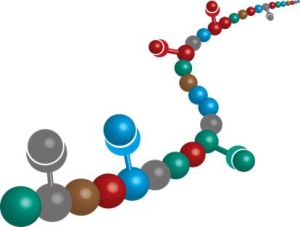Karlsruhe Institute of Technology (KIT) has again acquired a Collaborative Research Center (SFB) funded by the German Research Foundation (DFG). SFB 1176 “Molekulare Struktu-rierung weicher Materie” (Molecular Structurization of Soft Matter) is coordinated by KIT. The Collaborative Research Center will develop new synthesis processes for long-chain molecules in order to characterize and construct them with so far unreached precision. This will result in an innovative leap in a number of material classes.
“This success in the current round for funding new collaborative research centers again confirms the competence of our scientists,” the President of KIT, Professor Holger Hanselka, says. “Materials sciences have a long tradition and are very strong at KIT. They form the basis for many applications. In the new collaborative research center, our scientists plan to develop novel, customized materials.”
“Collaborative research centers are important instruments for scientific profiling,” KIT Vice President for Research and Information, Professor Detlef Löhe, emphasizes. “The associated research training group serves to particularly promote young scientists at KIT.”
“Our objective is to synthesize soft matter with a so far unreached extent of structural control, and this in three dimensions,” Professor Christopher Barner-Kowollik of the KIT Institute for Chemical Technology and Polymer Chemistry and spokesman of Collaborative Research Center 1176, says. Customized synthetic, theoretical, and analytical processes will be developed to control chemical precision synthesis and to characterize the structures produced. Highly precise macromolecules with defined functions will be generated and used in applications ranging from membrane technology to organic photovoltaics.
For example, one research line will cover the development of synthesis processes to perfectly control the sequence of the polymer building blocks. The obtained macromolecules with an exact chain length will be used to construct three-dimensional precision networks or functional metal complex-loaded nanoparticles. Precision networks are applied as separation media, whereas metallic nanoparticles are used as catalysts for new efficient synthesis paths.
Collaborative Research Center 1176 attaches particular value to promoting young scientists through the associated research training group for doctoral students and participation of young investigator groups. In the first of three possible four-year funding periods, the Collaborative Research Center will be funded with more than EUR 9 million. Via DFG’s Mercator Programme, Professor Martina Stenzel of the University of New South Wales, Australia, will also be involved.
Collaborative research centers funded by the German Research Foundation are long-term research institutions of universities, in which scientists cooperate in an interdisciplinary research program. They are designed to execute innovative, challenging, complex, and long-term research projects by concentrating and coordinating the forces of a university accordingly.
More information on the institute: http://www.itcp.kit.edu/english/220.php
In close partnership with society, KIT develops solutions for urgent challenges – from climate change, energy transition and sustainable use of natural resources to artificial intelligence, sovereignty and an aging population. As The University in the Helmholtz Association, KIT unites scientific excellence from insight to application-driven research under one roof – and is thus in a unique position to drive this transformation. As a University of Excellence, KIT offers its more than 10,000 employees and 22,800 students outstanding opportunities to shape a sustainable and resilient future. KIT – Science for Impact.

